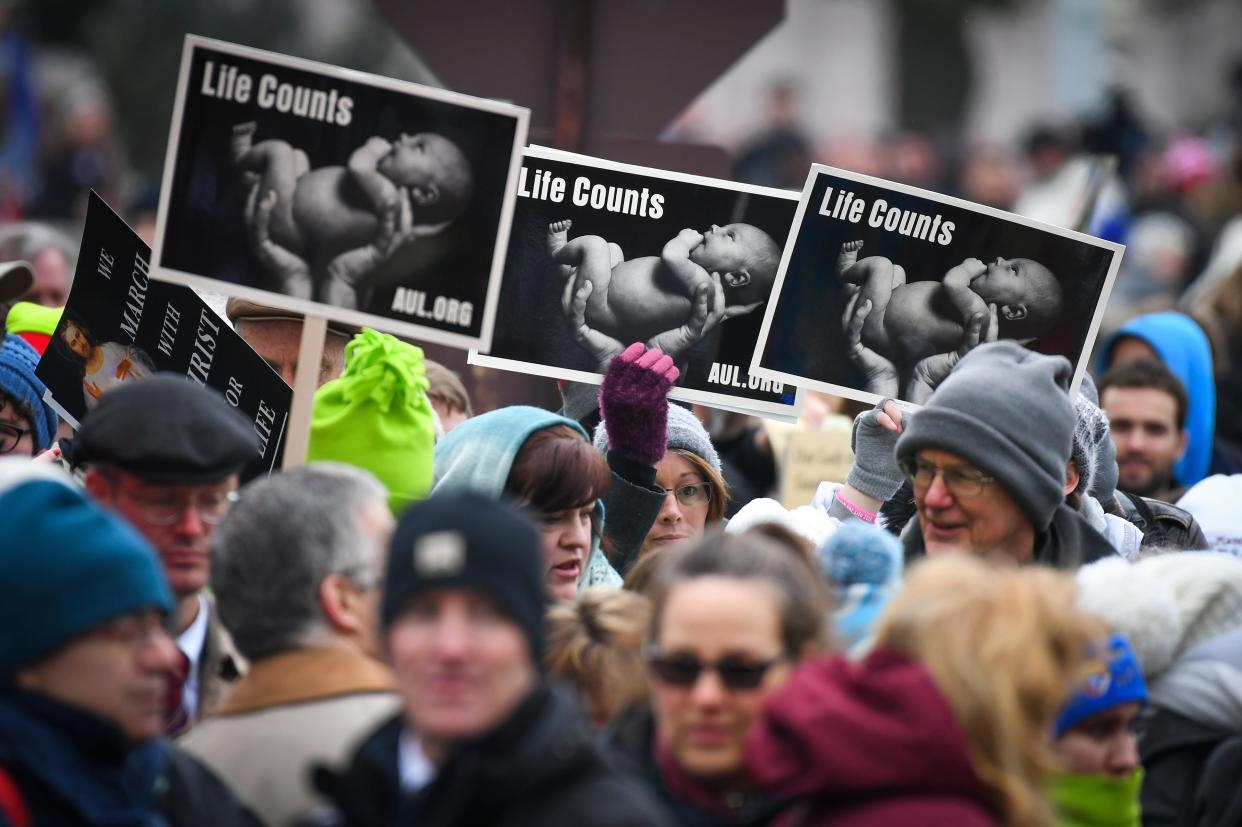Mississippi supports protecting life at 15 weeks. Give abortion debate back to the people.

The Supreme Court thought it was settling the abortion debate in 1973 with Roe v. Wade. But abortion policy has been unsettled ever since.
States pass laws and federal courts disagree in their rulings, unsure of what the special tests created by the Supreme Court for abortion cases alone really mean. Year after year, the people’s elected leaders pass legitimate laws, and one by one they are undone by unelected federal judges.
In 2018, the Mississippi Legislature, with overwhelming and bipartisan support, passed a law to safeguard women’s health and protect life after 15 weeks gestation. Like so many state laws that have been passed over the past few decades, the law never even had a chance to be tried before a federal court stopped it.
This week, I filed my brief with the Supreme Court of the United States to defend that law in Dobbs v. Jackson Women’s Health Organization – and to defend the right of people across the country to fully debate abortion policy and draft laws that protect legitimate interests in women’s health and unborn life.
Medicine and policies march forward
As a result of this nearly 50-year judicial-legislative stalemate, society’s debate on important policy matters, including how we affirm the dignity of women and their children, has been stunted. In my brief, I ask the Supreme Court to set things right and return abortion policy to the political branches where debate can flourish and the will of the people can be discerned at the ballot box.
Abortion hurts: I was pressured to abort my children. For my first baby, I gave in.
A lot has changed in five decades, but the court has kept states from evaluating those changes. In 1973, viability was thought to be at 28 weeks. Today, many mothers breathe a sigh of relief when they pass 22 weeks in their pregnancies. Just last month, national headlines celebrated the first birthday of a boy who was born at 21 weeks and two days. "Viability" is an arbitrary line that produces arbitrary results. Science and medicine will only continue marching forward, making that line an increasingly unreliable standard. Abortion policy should not remain tethered to it.
In 1973, the state of women in the workplace and the stigma surrounding single parenting were very different than today. Maternity leave and paternity leave are now commonplace, as are workplace flexibility policies such as telework, hybrid schedules and more. Equal opportunity laws, largely passed in a post-Roe world, prohibit pregnancy employment discrimination.
Opinions in your inbox: Get the best insights and analysis every morning
The gig economy has opened up options for freelance, part-time work and independent contracting. A little more than a third of American workers engage in the gig economy today, and if trends continue, that could rise to more than half by 2027. Women don’t need to choose between a child and a career. As a single, working mother who raised three children and became Mississippi’s first female attorney general, I can attest to that.
States can serve women and babies
It is time to release states from outdated legal precedents. We are asking the court to affirm Mississippi’s right to act on legitimate interests of life and women’s health. The court credits states with important interests, but the stale legal precedents of Roe v. Wade and Planned Parenthood v. Casey do not allow them to advance those interests.
Abortion access: My patients shouldn't have to fight this hard for an abortion. Will Biden get in the ring?
The Supreme Court has a great opportunity before it. Through a favorable Dobbs v. Jackson Women’s Health Organization ruling, the justices can finally take themselves out of the national debate on abortion and give it back to the people. As I wrote in my brief:
“The national fever on abortion can break only when this Court returns abortion policy to the States – where agreement is more common, compromise is more possible, and disagreement can be resolved at the ballot box.”
If the court follows the straightforward path laid out by the Constitution and 200 years of its own legal reasoning, it will find Mississippi’s 15-week law constitutional. And it will return decision-making about abortion policy to the people. In doing so, we can have a future where the interests of mothers and babies are no longer pitted against one another, a future that recognizes generations of progress for women in society. A favorable ruling will allow the people to empower women and promote life.
Lynn Fitch is the attorney general of Mississippi.
You can read diverse opinions from our Board of Contributors and other writers on the Opinion front page, on Twitter @usatodayopinion and in our daily Opinion newsletter. To respond to a column, submit a comment to letters@usatoday.com.
This article originally appeared on USA TODAY: Mississippi 15-week abortion ban: Give abortion debate back to states

